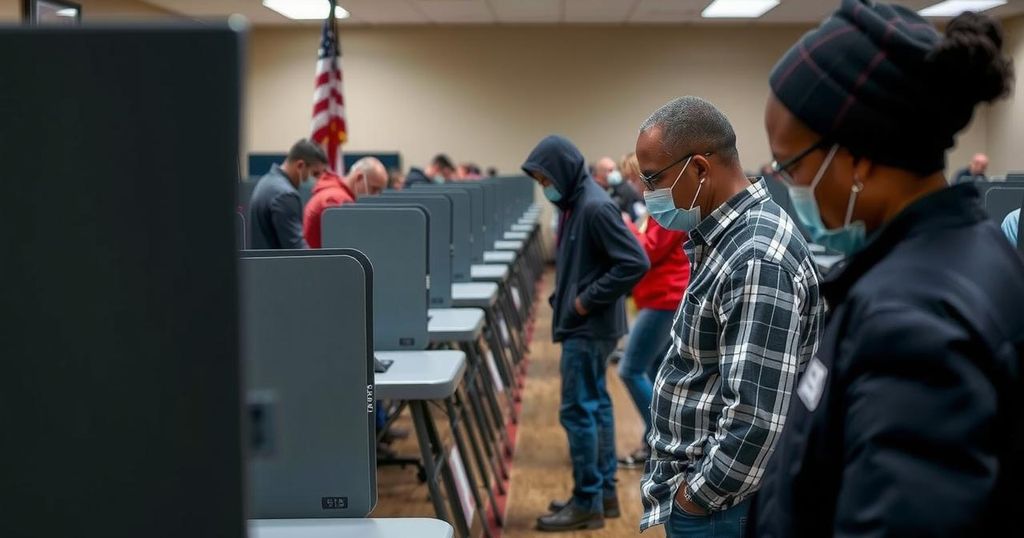Concerns Over Intimidation and Electoral Integrity in Georgia’s Recent Elections

European observers have noted severe instances of intimidation and election violations during Georgia’s recent elections, casting doubt on the legitimacy of the results and raising concerns about the country’s future relationship with Europe. Georgian Dream party secured a majority vote amidst allegations of authoritarian practices, thus prompting fears about democratic backsliding and the implications for Georgia’s aspirations of EU membership.
European observers have raised significant concerns regarding the integrity of Georgia’s recent elections, describing them as occurring within a “climate of hatred and intimidation.” Amidst widespread violations and episodes of violence, it is argued that the election results could undermine the prospects for Georgia’s future engagement with Europe. The ruling party, Georgian Dream, secured 54.8% of the vote according to the Central Election Commission, amid reports of one of the highest voter turnouts since its initial election in 2012. However, observers highlighted issues including organized intimidation, vote buying, and a lack of impartiality from state institutions. Moreover, the party’s increasingly authoritarian behavior—mirroring measures utilized by Russia to suppress dissent—has raised alarms both within Georgia and among international observers. Statements from Julian Bulai, head of the PACE delegation monitoring the election, and Antonio Lopez-Isturiz White, head of the European Parliament monitoring delegation, emphasize that the government’s actions appear to contradict its claims of support for European integration. As a result, concerns about democratic backsliding have been voiced. Prime Minister Irakli Kobakhidze characterized the electoral outcome as unambiguous and suggested any allegations of manipulation are unfounded. Opposition leaders, including Tina Bokuchava from the United National Movement, denounced the election commission, alleging that it acted under the influence of the party’s founder, Bidzina Ivanishvili, and asserted that the election results do not reflect the will of the populace. Reports of violence against opposition members and their headquarters further exacerbate fears regarding the legitimacy of the electoral process. As Georgia navigates its historical tensions with Russia, many citizens are wary of the implications that this election will yield regarding their European aspirations and democratic stability.
Georgia’s historical relationship with Russia is complex, influenced heavily by the legacy of Soviet rule and the conflict arising from Russia’s occupation of Georgian territories after the 2008 war. As Georgia aspires to strengthen its ties with the European Union and NATO, its citizens exhibit a strong desire for integration with Europe, as reflected by polls indicating that approximately 80% support EU membership. Recent developments, such as the ruling party’s increasingly authoritarian measures and a suspension of its EU membership bid due to a controversial law, have intensified fears about a potential shift towards Moscow’s sphere of influence.
The recent elections in Georgia, marred by allegations of violence, intimidation, and misconduct, have raised serious concerns regarding the democratic integrity of the electoral process and the future trajectory of the country in its international relations. Observers and opposition leaders contend that the election outcomes do not reflect the will of the people, casting doubt on the legitimacy of the ruling party’s claims. As Georgia stands at a pivotal juncture, the international community’s recognition of the elections and the country’s prospects for European integration remain critically significant.
Original Source: abcnews.go.com








